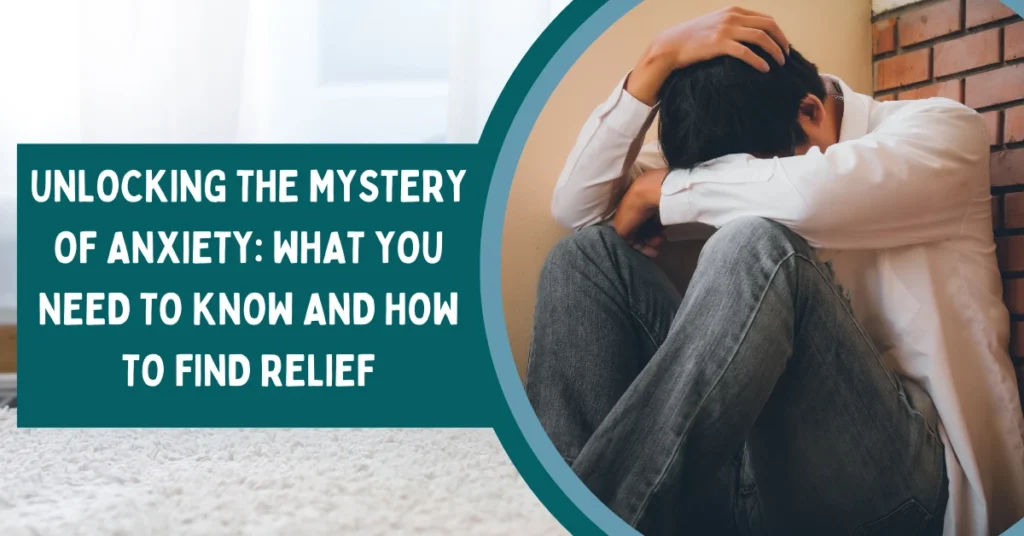Chronic insomnia is a widespread problem that can significantly impact a person’s quality of life. While occasional sleeplessness is common, chronic insomnia is characterized by difficulty falling asleep, staying asleep, or waking up too early on a consistent basis. This condition can persist for weeks, months, or even years, and it can have far-reaching effects on physical and mental health. Knowing when to seek professional help is crucial for anyone suffering from insomnia.
What is Chronic Insomnia?
Chronic insomnia is generally defined as experiencing sleep disturbances at least three times per week for a duration of three months or longer. While acute insomnia may be triggered by short-term factors like stress or jet lag, chronic insomnia often requires medical intervention to address underlying issues.
The causes of chronic insomnia can be diverse and multifactorial. They may include:
- Psychological factors: Stress, anxiety, and depression are some of the most common contributors to insomnia. Anxiety can make it difficult to quiet the mind, while depression can lead to early morning awakenings and excessive daytime sleepiness.
- Medical conditions: Certain physical conditions, such as chronic pain, sleep apnea, or restless leg syndrome, can interfere with sleep. Hormonal imbalances (e.g., thyroid issues) and neurological disorders can also disrupt sleep patterns.
- Medications: Some medications can affect sleep, including stimulants (e.g., certain antidepressants) and medications used to treat high blood pressure, asthma, or allergies.
- Lifestyle factors: Irregular sleep schedules, late-night screen time, poor sleep hygiene, and substance use (e.g., alcohol, caffeine, or nicotine) can all contribute to insomnia.
When to Consult a Professional
While some sleepless nights are inevitable, chronic insomnia should not be ignored. Seeking professional help is crucial if:
- Sleep Problems Persist for Three Months or Longer
- If you’ve been struggling to sleep for over three months, it’s time to consult a healthcare provider. Chronic insomnia can lead to a range of physical and psychological consequences, including weakened immune function, impaired cognitive performance, increased anxiety, and depression.
- You Experience Daytime Impairment
- If poor sleep is causing noticeable daytime impairment, such as fatigue, poor concentration, irritability, or mood swings, it’s essential to seek help. Cognitive decline, increased risk of accidents, and social withdrawal can all occur due to prolonged sleep disturbances.
- Sleep Disruptions Are Impacting Your Mental Health
- If chronic insomnia is contributing to anxiety, depression, or other mental health issues, it is important to address these problems early on. Sleep disturbances and mental health conditions are often interconnected, and untreated insomnia can worsen psychiatric symptoms.
- Traditional Sleep Hygiene Practices Aren’t Effective
- If you’ve made lifestyle changes such as improving your sleep environment or establishing a consistent bedtime routine without seeing improvement, professional intervention may be necessary. A healthcare provider can help you develop a personalized plan to address your insomnia.
Treatment Options for Chronic Insomnia
When consulting a healthcare provider for chronic insomnia, several treatment options may be considered:
- Cognitive Behavioral Therapy for Insomnia (CBT-I)
- CBT-I is a highly effective, evidence-based treatment for chronic insomnia. This type of therapy focuses on identifying and changing thought patterns and behaviors that contribute to sleep difficulties. It is typically recommended as the first-line treatment for insomnia.
- Medications
- For those experiencing severe insomnia, medications like Ambien is primarily used to help with sleep onset and has a shorter duration of action, making it a good option for those who struggle to fall asleep but don’t have trouble staying asleep. Lunesta, on the other hand, has a longer half-life, which helps with both sleep onset and maintenance. However, these medications do not address the root causes of insomnia and are typically used for brief periods. Long-term medication use is generally not recommended unless combined with behavioral therapy to promote lasting sleep improvements.
- Sleep Studies
- If there is concern that your insomnia is related to another sleep disorder, such as sleep apnea or restless leg syndrome, a sleep study (polysomnography) may be recommended. This diagnostic test records brain waves, heart rate, and other physical functions to identify any underlying sleep conditions.
- Lifestyle and Environmental Modifications
- A healthcare provider may also recommend adjustments to your sleep environment or daily habits, such as managing caffeine intake, limiting alcohol, and ensuring your bedroom is conducive to sleep.
Conclusion
Chronic insomnia can have profound effects on your physical and mental well-being. If sleep disturbances persist for more than a few weeks, it’s crucial to consult a healthcare provider to explore treatment options. By addressing the underlying causes of insomnia through therapy, medication, and lifestyle changes, you can significantly improve the quality of your sleep and overall health.

